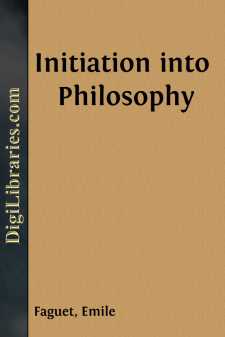Categories
- Antiques & Collectibles 13
- Architecture 36
- Art 48
- Bibles 22
- Biography & Autobiography 813
- Body, Mind & Spirit 142
- Business & Economics 28
- Children's Books 13
- Children's Fiction 10
- Computers 4
- Cooking 94
- Crafts & Hobbies 4
- Drama 346
- Education 46
- Family & Relationships 57
- Fiction 11828
- Games 19
- Gardening 17
- Health & Fitness 34
- History 1377
- House & Home 1
- Humor 147
- Juvenile Fiction 1873
- Juvenile Nonfiction 202
- Language Arts & Disciplines 88
- Law 16
- Literary Collections 686
- Literary Criticism 179
- Mathematics 13
- Medical 41
- Music 40
- Nature 179
- Non-Classifiable 1768
- Performing Arts 7
- Periodicals 1453
- Philosophy 64
- Photography 2
- Poetry 896
- Political Science 203
- Psychology 42
- Reference 154
- Religion 513
- Science 126
- Self-Help 84
- Social Science 81
- Sports & Recreation 34
- Study Aids 3
- Technology & Engineering 59
- Transportation 23
- Travel 463
- True Crime 29
Emile Faguet
Émile Faguet (1847–1916) was a French literary critic and historian known for his insightful and often critical studies of French literature. He taught at the Sorbonne and became a member of the prestigious Académie Française in 1900. Faguet's notable works include "La Tragédie française au XVIe siècle," "Dix-huitième siècle: études littéraires," and "Politiques et moralistes du dix-neuvième siècle," where he examined the moral and political dimensions of literature. His writing is characterized by clear, concise analysis, and he had a significant influence on French literary criticism during his time.
Author's Books:
Sort by:
by:
Emile Faguet
CHAPTER I BEFORE SOCRATES Philosophical Interpreters of the Universe, of the Creation and Constitution of the World. PHILOSOPHY.—The aim of philosophy is to seek the explanation of all things: the quest is for the first causes of everything, and also how all things are, and finally why, with what design, with a view to what, things are. That is why, taking "principle" in all the senses of the...
more...
by:
Emile Faguet
CHAPTER I ANCIENT INDIA The Vedas. Buddhist Literature. Great Epic Poems, then veryDiverse, much Shorter Poems. Dramatic Literature. Moral Literature. THE VEDAS.—The ancient Indians, who spoke Sanscrit, possess a literature which goes back, perhaps, to the fifteenth century before Christ. At first, like all other races, they possessed a sacred literature intimately bound up with their religion. The...
more...



